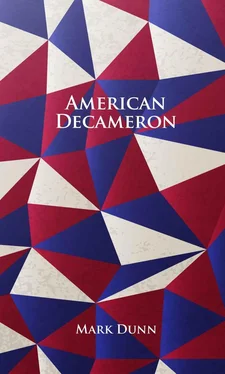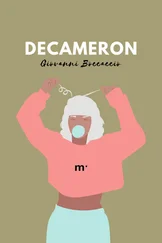I had heard the story before. It’s not a story you forget, but I pretended that I hadn’t and shook my head.
“It was back in ’57, when Richie was playing for the Phillies — he hits this foul ball right into the stands, and wham! The unlucky bastard breaks the poor woman’s nose. And this equally hapless Mrs. Roth, they’re getting her all laid out on the stretcher and the game picks back up again and — sweet Jesus in a hammock — Ashburn beans her again , right there on the goddamned stretcher! It’s like the gods of misfortune just aren’t gonna be happy until the poor woman gets sent up to that disabled list in the sky.”
Although I already knew the answer, I asked anyway: “And was Mrs. Roth — did she end up being okay?”
“Oh, sure — sure. I think she and Richie even became friends after all that.”
Murphy announced that Don Zimmer would be playing third base for the Mets. “Now you talk about your bad luck. Did I ever tell you about Zimmer’s shit-for-luck magnet head for wild pitches?”
“He got hit in the head too?”
“Right in the temple, back in ’53, when he was playing for the minors in St. Paul. Put him in a coma for two weeks and they had to drill a bunch of holes into his head — to relieve the pressure, I guess. I think he wears a steel plate to this day. Anyway, they told him he was finished in baseball, but he proved them all wrong. Came back stronger than ever so he could get himself beaned again in ’56 in Cincinnati — broke his motherloving jaw.”
As Murphy was announcing the Cardinals’ lineup, Harvey sat up straight. I knew he was listening for Musial’s name and once he heard it, he couldn’t hold back a big grin. “Busch, Sportsman’s Park — whatever the hell it is that we’re supposed to call it now — it’s one of the best parks in the majors for left-handed hitters like Musial. Babe Ruth hit three homers in two different World Series games back in ’26 and ’28.”
“Harvey, how is it you know so much about baseball?”
“I know so much about everything . You think your mother married me for my looks?” Harvey grinned even bigger than before and chucked me under the chin. Then we both got quiet and listened to the opening innings of the inaugural game of the New York Mets, which was also the first game of the 1962 major league baseball season. New York City was thrilled to finally have a second team. There was to be a big parade down Broadway in Manhattan the next day. A special ceremony with Mayor Wagner was scheduled for City Hall.
Today’s game had been postponed from the day before because of rain. The outfield was soggy and the fielders had to wear football shoes to get any traction. The Mets’ pitcher, Roger Craig, struggled against the Cards in the early innings, but for everything that had been said about Gil Hodges and his advanced years (in baseball terms, that is, and only by my stepfather Harvey — Murphy and Ralph Kiner and their broadcast booth colleague Lindsey Nelson being far kinder), the first baseman knocked the ball out of the park in the fourth inning (his 362nd career homer).
“Gil, you son of a bitch!” my stepfather howled, and then turning to me: “I take back everything I said about that old geezer.” To punctuate his mea culpa, he took a big swig of beer and passed the bottle to me. “Yeah, I’m a bad influence. Sue me.”
Harvey laughed, his whole face radiating happiness. Then suddenly the joy evaporated. He turned the volume knob of the radio so that Kiner’s voice dropped to a mumble and the crowd noises were reduced to a hum. The spell that had been cast over us by the game was now broken.
There is something about listening to baseball on the radio, something indefinably gratifying, that has stayed with me well into my later years — past that disastrous first season for the Mets, in which they won only one out of every four games they played (and finished the season 60 ½ games behind the Giants) and even beyond their redemptive Cinderella year, 1969. Even today I can still close my eyes and picture myself at the ballpark, first the Polo Grounds and then the spanking new Shea Stadium. I imbibe the vocal restlessness of the fans — supportive, forgiving, but this being New York, always displaying a kind of ballsy bluntness, a sort of tough love for a team that stumbled just as often as it walked or ran. If I listen close enough, I can even hear the cries of the hotdog and peanut vendors: the perfect ambient embroidery to the drone of that vibrant crowd.
But there is something related to that experience that isn’t so gratifying. It’s the reminder of what happened next on that first day of the 1962 baseball season, as I sat beside my stepfather in his brand new Volkswagen Beetle.
“There’s something I need to talk to you about,” said Harvey. “I promised your mom I’d do it today.”
Harvey put out his Tiparillo. Years later, whenever I saw an ad for the little cigars or heard the company cigarette girl’s catchphrase, “Cigars? Cigarettes? Tiparillos?” I would think back on this conversation with a welter of feelings.
“Your mother wants a divorce.”
“Oh.” It took me a few seconds to pull myself out from under this ton of bricks. “How come?”
“She doesn’t love me anymore.”
“What did you do?”
“Maybe I’m not so easy to live with, Scoots. I drink. I smoke. I swear. I buy Nazi cars. Maybe I’m not so good for you and your sister to be around. Your dad moved out, and what does your mom do? She takes in the first fleabitten old mongrel that shows up on her porch. Like that Mrs. Payson who owns the Mets — she doesn’t go for a young husband like your father, she gets one with maybe a little too much mileage.”
“Gil Hodges just hit a home run.”
“And Don Zimmer’s playing third with a metal plate in his head. I’m not saying I’m worthless, kid. Hell, I’m designing conducting coils for the strongest magnet mankind’s ever put together. I’m just saying your mom and I — we had some laughs, and now it’s time for me to chug off in my little insect car and quit corrupting the kids, you know?”
“You aren’t corrupting me. I’m eleven. I can take care of myself.”
Harvey didn’t say much after that. He turned up the volume and together we listened as the Cardinals piled up the runs. The final score that day would be 11–4. It was to be the first of nine straight losses for the Mets. They wouldn’t catch a break until they faced off against the Pirates twelve days later, on April 23.
During a commercial for Rheingold Beer sung by Vic Damone, I turned down the volume and asked my stepfather when he was moving out.
“Couple of days.”
“Will Connie and I get to see you again?”
“I won’t be a stranger. In fact, your mom says once I get my own place, you can come over and listen to the games whenever you like. And your sister can come too. I have a feeling I’m going to start missing her linguine real fast.”
I rested my head against the glass of the passenger window. Even with the pervasive smell of the cigar smoke and the beer, I could detect the distinct rubber and vinyl scent of a virgin car. I liked the smell. New cars reminded me that change isn’t always bad. I tried to see my stepfather Harvey’s departure this way. Harvey knew how much I had grown to love him and look up to him, even though he was a good fifteen years or so older than my mother and obstinately set in his ways (as he would be the first to admit). He had taught me everything I knew about baseball and cars and technology and science, and had been, in truth, over these last two years, much more of a father to me than my own.
I think Harvey knew this and I think it made having to tell me about the decision he and my mom had reached a hard thing to do. Harvey had been married only once before, many years ago for a few months after he got out of the Navy. He never talked about his first wife and I didn’t ask. He never had kids. Connie and I were the closest he was ever going to come to having kids.
Читать дальше












